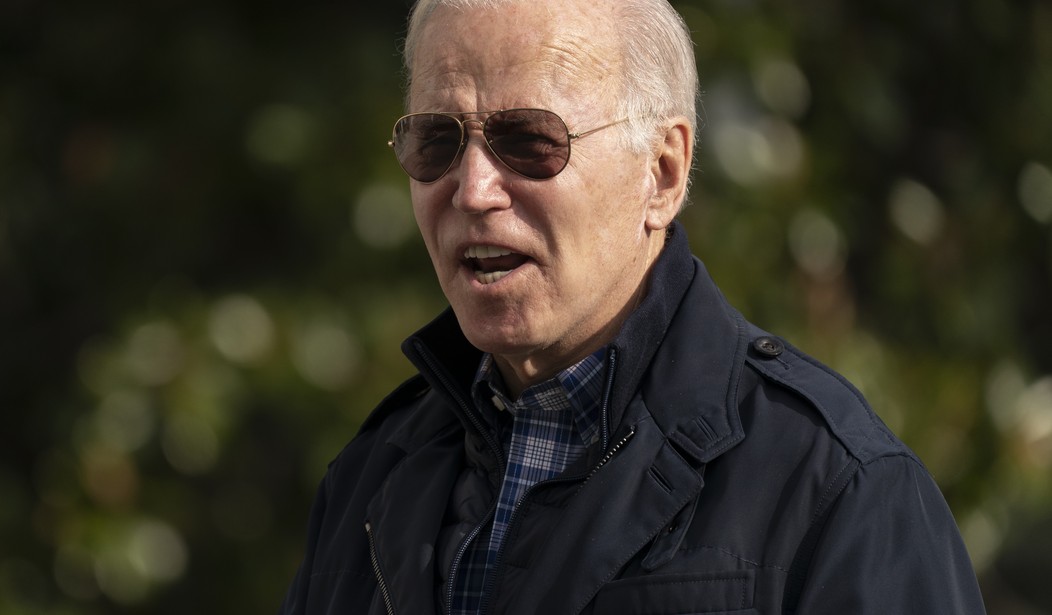Is the mandate dead? Or is it just resting?
I think it’s like Westley in “The Princess Bride,” mostly dead. Not yet at the stage where we go through its pockets and look for loose change.
The rule couldn’t go forward in its current form, as an “emergency temporary standard,” after SCOTUS ruled 6-3 against it. So OSHA is revoking the ETS but not the rule itself, which it says will be overhauled and then submitted to the normal agency rulemaking process with a designated period for public comment, etc.
What’s odd about that is that the Court didn’t dwell on the process OSHA used to promulgate the mandate in its opinion blocking it. The agency seems to be calculating that following more traditional administrative procedures might give the policy a better chance of holding up in court the next time it’s challenged but I’m not sure why.
The U.S. Department of Labor’s Occupational Safety and Health Administration is withdrawing the vaccination and testing emergency temporary standard issued on Nov. 5, 2021, to protect unvaccinated employees of large employers with 100 or more employees from workplace exposure to coronavirus. The withdrawal is effective January 26, 2022.
Although OSHA is withdrawing the vaccination and testing ETS as an enforceable emergency temporary standard, the agency is not withdrawing the ETS as a proposed rule. The agency is prioritizing its resources to focus on finalizing a permanent COVID-19 Healthcare Standard.
OSHA strongly encourages vaccination of workers against the continuing dangers posed by COVID-19 in the workplace.
It’s hard to argue at this point that fighting the pandemic requires an “emergency” OSHA rule. Even if the mandate took effect today, it’d be five weeks at a minimum before the unvaccinated would enjoy the full protection of two doses. Omicron should be in full retreat by then.
The Court’s opinion staying the mandate said nothing about the difference between an ETS and a traditional agency rule. Its objection to the mandate was more basic, that OSHA’s purview is limited to regulating the workplace and that COVID fundamentally isn’t a “workplace” problem. The threat persists even when you knock off work for the day. Quote:


OSHA’s problem isn’t that it followed the wrong rulemaking procedure, it’s that it attempted to impose a sweeping policy far beyond its administrative remit without specific authorization by Congress. I don’t know what the agency thinks will change if it now slows down and does things by the book with its forthcoming iteration of the mandate.
Maybe it expects nothing will change. I wonder if it’s refusing to concede total defeat on the mandate simply to provide political cover for private businesses to continue implementing their own vaccine mandates. If OSHA ditches the mandate altogether, it’s easy for an anti-vax worker to go to his boss and say, “Why do you insist on us getting vaccinated when the feds no longer insist on it?” With OSHA vowing to take another stab at the rule, that boss can reply, “The mandate is still coming. OSHA is reworking it. Don’t blame me.”
The mandate’s not dead, just … resting. Except it almost certainly really is dead. And with Omicron hopefully on its way out soon, leaving a huge amount of natural immunity behind, we may see some major employers decide to ditch their extant mandates as a gesture towards normalcy. We’re already seeing it, in fact:
Starbucks, with 9,000 U.S. coffee shops and 200,000 workers, has become one of the first major retailers to backtrack on vaccine plans since the ruling.
Starbucks told its employees in a memo on Tuesday that they would no longer be required to be fully vaccinated or submit to weekly coronavirus testing. Just two weeks earlier, the company had detailed the requirement and set a deadline of Feb. 9…
Starbucks’s move to drop its vaccine-or-test deadline highlights how the court’s ruling has put the responsibility for determining vaccination rules squarely on employers. And companies face a patchwork of federal, state and local laws, which range from vaccine mandates that are stricter than the federal government’s to laws blocking companies from requiring workers to wear masks.
Democratic politicians were lockstep in supporting vaccine mandates last year but the more COVID restrictions become a political liability for them before the midterms, the more they’ll look for excuses to pivot away from them. I wouldn’t be surprised to hear Biden and some Dem governors argue soon-ish that the case for mandates has eased (somewhat) post-Omicron because of the high degree of population immunity left in the variant’s wake.
Doctors and nurses would be unhappy to see the feds take their foot off the gas in pressuring people to get vaccinated, but oh well. Politics comes first. And we’ve probably reached the point where anyone who’s persuadable on getting vaccinated has already been jabbed. To the extent there are still willing unvaccinated people out there, it may be more a matter of making sure there’s easy access in their community and giving them time off work to get the shot than pressuring them with mandates.
There’s one more important point from SCOTUS’s ruling on the OSHA rule, though. The Court did leave some room for the agency to set COVID regulations in the workplace. A blanket vaccine mandate on 80 million American workers is no-go but a more targeted policy aimed at workers who might plausibly be at higher risk of infection in the workplace may be viable:

The Court didn’t say there that OSHA could require employees in certain businesses to get vaccinated, only that the agency could “regulate” high-risk workspaces to reduce the threat of catching COVID. But it does leave open the possibility that a vaccine mandate for, say, meatpackers might pass Court muster given the cramped quarters those workers operate in. Stay tuned.









Join the conversation as a VIP Member